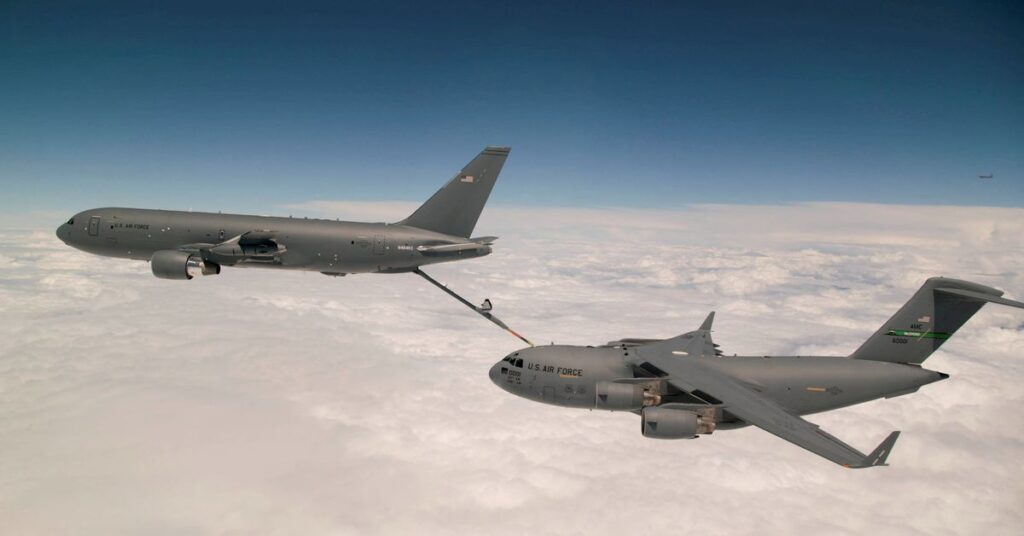[1/3]Boeing’s KC-46 aerial refueling tanker conducts receiver compatibility tests with a U.S. Air Force C-17 Globemaster III from Joint Base Lewis-McChord, in Seattle, Washington, U.S., July 12, 2016. Christopher Okula/ U.S. Air Force/Handout via REUTERS/File Photo Acquire Licensing Rights
WASHINGTON, Oct 23 (Reuters) – Lockheed Martin Corp (LMT.N) has withdrawn from the U.S. Air Force’s competition to build at least 75 refueling tankers, the company said, giving Boeing’s (BA.N) KC-46 Pegasus a boost in the closely watched multibillion-dollar defense contract.
Airbus (AIR.PA) teamed up with Lockheed as the prime contractor in 2018 to offer its A330 multi-role tanker transport. Now the European aerospace company will continue to pursue the competition but without Lockheed, Airbus said late Monday.
Lockheed’s pullback gives Boeing a boost, greatly increasing the chance it will win the program despite years of costly mistakes with the existing fleet of KC-46 tankers.
Based on current prices, the total order could equal around $12 billion, but is likely to be higher. The KC-46, however, has been plagued by defects, including problems with an on-board video system and a refueling boom that fails to connect the tanker to aircraft seeking refueling. These errors have cost Boeing $7 billion in losses.
Shares of Boeing turned positive after Reuters first reported the Lockheed news, and were up 1.7%.
An Airbus victory would land Airbus its first aircraft contract with the U.S. Air Force after attempting to penetrate the U.S. defense market for two decades.
Monday’s news also marks the second time Airbus had been dumped by a U.S. partner. Airbus, previously worked with Northrop Grumman Corp (NOC.N) to win a $35 billion contract in 2008 to build MRTT tankers for the U.S. Air Force. That effort was scuttled after a Boeing protest succeeded in opening the path for the KC-46.
The Air Force, which aims to replace hundreds of Eisenhower-era KC-135 tankers in three lots, kicked off a competition in 2022 for its second tranche of as many as 160 jets on top of the 179 KC-46 Pegasus planes Boeing has begun to build. The U.S. later slashed the effort to 75.
Lockheed said it would shift the tanker team and resources to other programs including “aerial refueling solutions in support of the U.S. Air Force’s Next-Generation Air-Refueling System (NGAS) initiative.”
NGAS is the final tranche of the current tanker replacement program. It is expected to be announced and completed in the 2030s.
The abrupt departure of the Lockheed bid, known as LMXT, surprised some Capitol Hill aides. Advocacy for the LMXT, which would be made in Alabama and Georgia, had been extensive with Lockheed spending heavily to assure that Boeing’s plane was not a shoo-in to win the second tranche.
In 2011, Boeing won the first of the three-phase procurement to replace the Air Force’s aging tanker fleet, securing a contract for 179 KC-46s.
Reporting by Valerie Insinna and Mike Stone in Washington; Editing by Chizu Nomiyama, Bill Berkrot and Jonathan Oatis
: .


